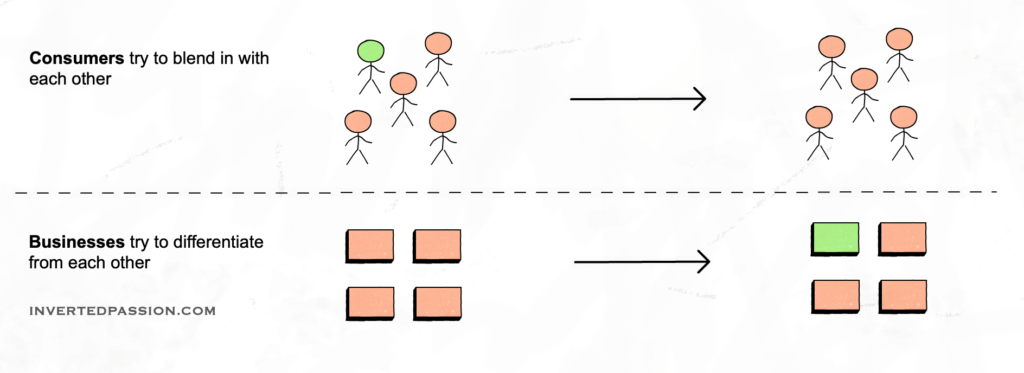Most consumers at any given moment are more or less satisfied with what they have. Since we’re creatures of habit, we tend to go to the same restaurants that we like, buy the same stuff as we’ve always done and live our days without significant deviations. We’re less exploratory than we’d like to think.
This is because there’s a cost of change. Whenever we are trying a new product, we’re incurring a cost (of effort, time, or money). And, we go to great lengths for avoiding these costs.

How do we avoid these costs?
We see around us and copy what’s working for others. We usually want to conform to what others around us are doing. We do not want to be left out of the social phenomena of popular movies and trends. If our friends have it, we ought to have it. This desire to blend into our social group is what accelerates the adoption of consumer products. But the same tendency makes it hard for a new consumer startup to gain traction. Such startups face the classic chicken and egg problem: nobody uses their product because nobody else is using it already.
Companies, on the other hand, are usually on the lookout to differentiate. Instead of conforming, companies want to gain an edge by doing something nobody else is doing because that’s how they’ll generate a profit. Gaining an edge is why they’re sometimes willing to give unproven startups a shot or try new products that will make them faster, cheaper, or better than their competition.
(Of course, there are consumers who want to differentiate from each other. But the greater tendency for humans is to avoid being a sore thumb in a crowd.)
Remember: social proof is way more effective for individuals than for businesses. Tell individuals how everyone interesting is using your product but when you’re pitching to a business, tell them how they can differentiate using your solution.
This essay is part of my book on mental models for startup founders.
Join 200k followers
Follow @paraschopra